7 most important things Facebook announced at F8 2018
Oculus Go release date, Facebook dating profiles and more
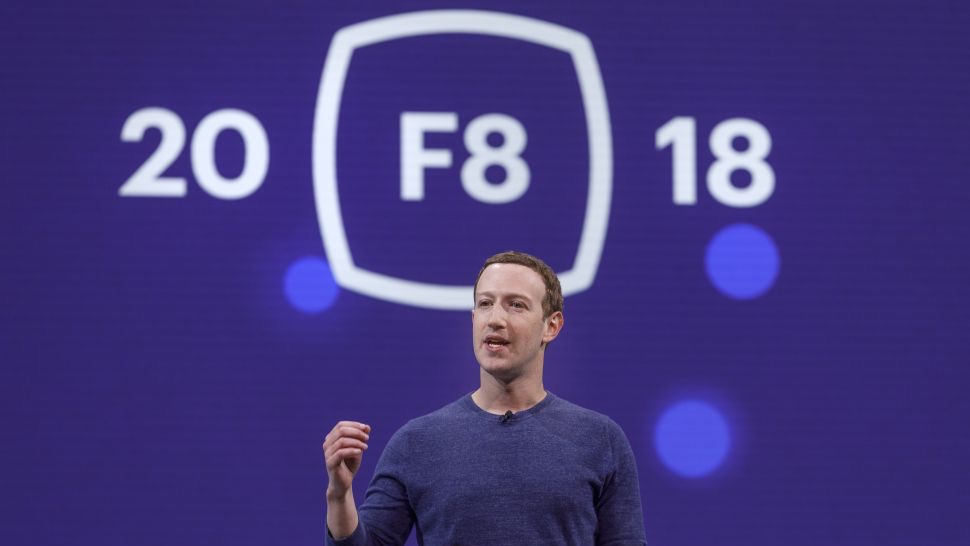
Facebook’s ongoing Cambridge Analytica data scandal may have delayed its smart home speaker’s release date, but the social network's annual developer conference went on as planned.
CEO Mark Zuckerberg started off the F8 2018 conference with a protracted apology for Facebook’s role in Russian election-meddling and third-party acquisitions of personal data, explaining Facebook's new privacy security settings along the way.
Having addressed the elephant in the room, Zuckerberg jumped into Facebook’s newest products, services and features.
Lucky for you, we've rounded up the seven most important announcements from the F8 2018 Day 1 keynote right here.
1. Oculus Go release date is today
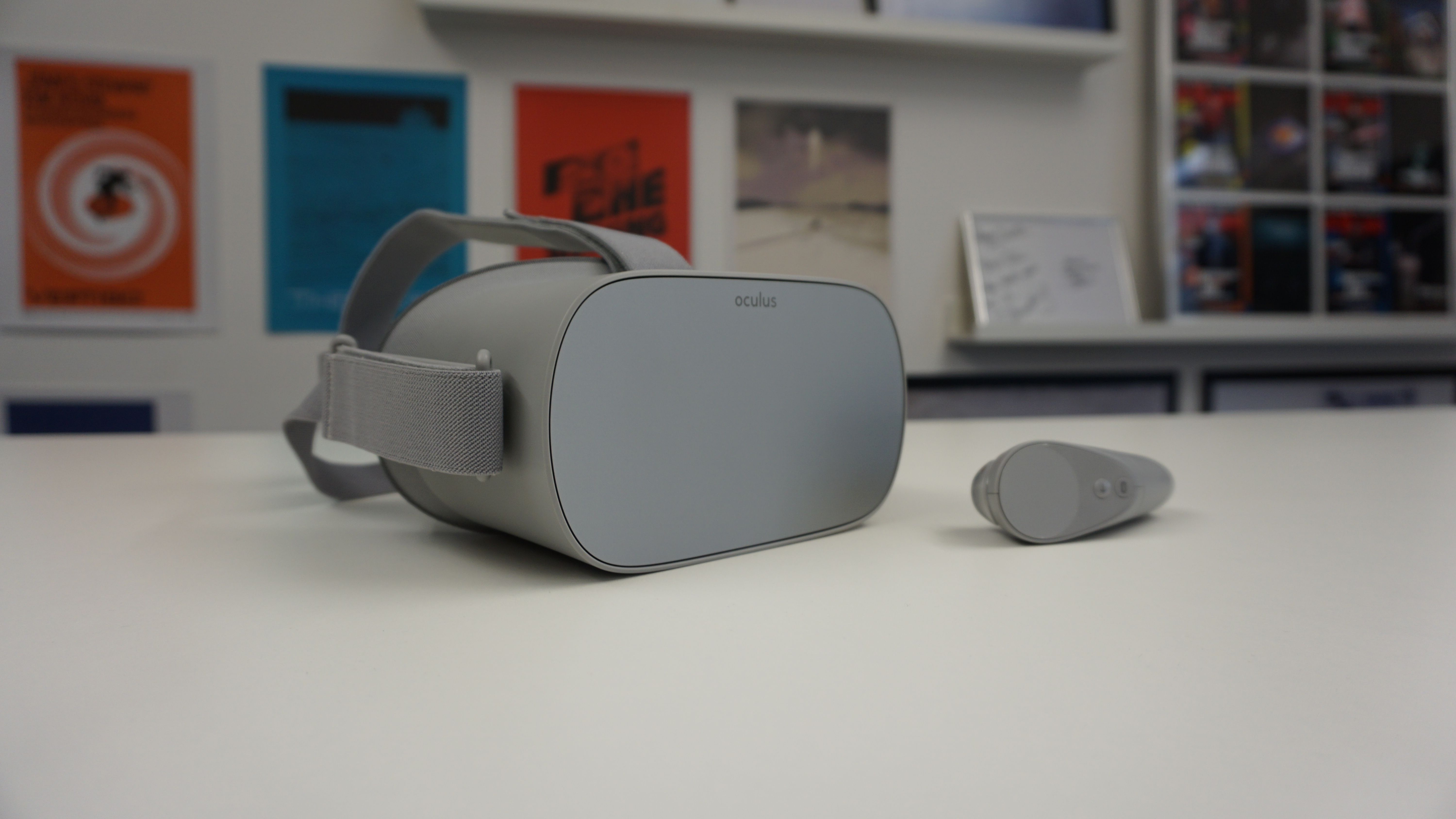
In a not-so-surprise announcement, Zuckerberg informed the San Jose, California conference crowd and those watching via livestream that Oculus Go is on sale today on Oculus.com.
People in 23 countries, including the US, UK, Australia, Canada, Denmark, Finland, Norway and Sweden, can go on the site and purchase the standalone headset right now.
Shoppers in the US can also find Oculus Go on sale at Amazon, Best Buy and NewEgg as well as at Best Buy retail stores today.
Sign up for breaking news, reviews, opinion, top tech deals, and more.
On stage, Zuckerberg called the Oculus Go the “first really affordable” VR headset on the market, and claimed it has the “highest quality lenses and optics that we have ever built into a VR device”, including the latest Oculus Rift.
- Here’s our in-depth Oculus Go review
The base 32GB model costs $199 / £199 / AU$299, while the 64GB version sells for $249 / £249 / AU$369. And over 1,000 Oculus Go games and apps are available to play right now.
2. Dating profiles are coming to Facebook
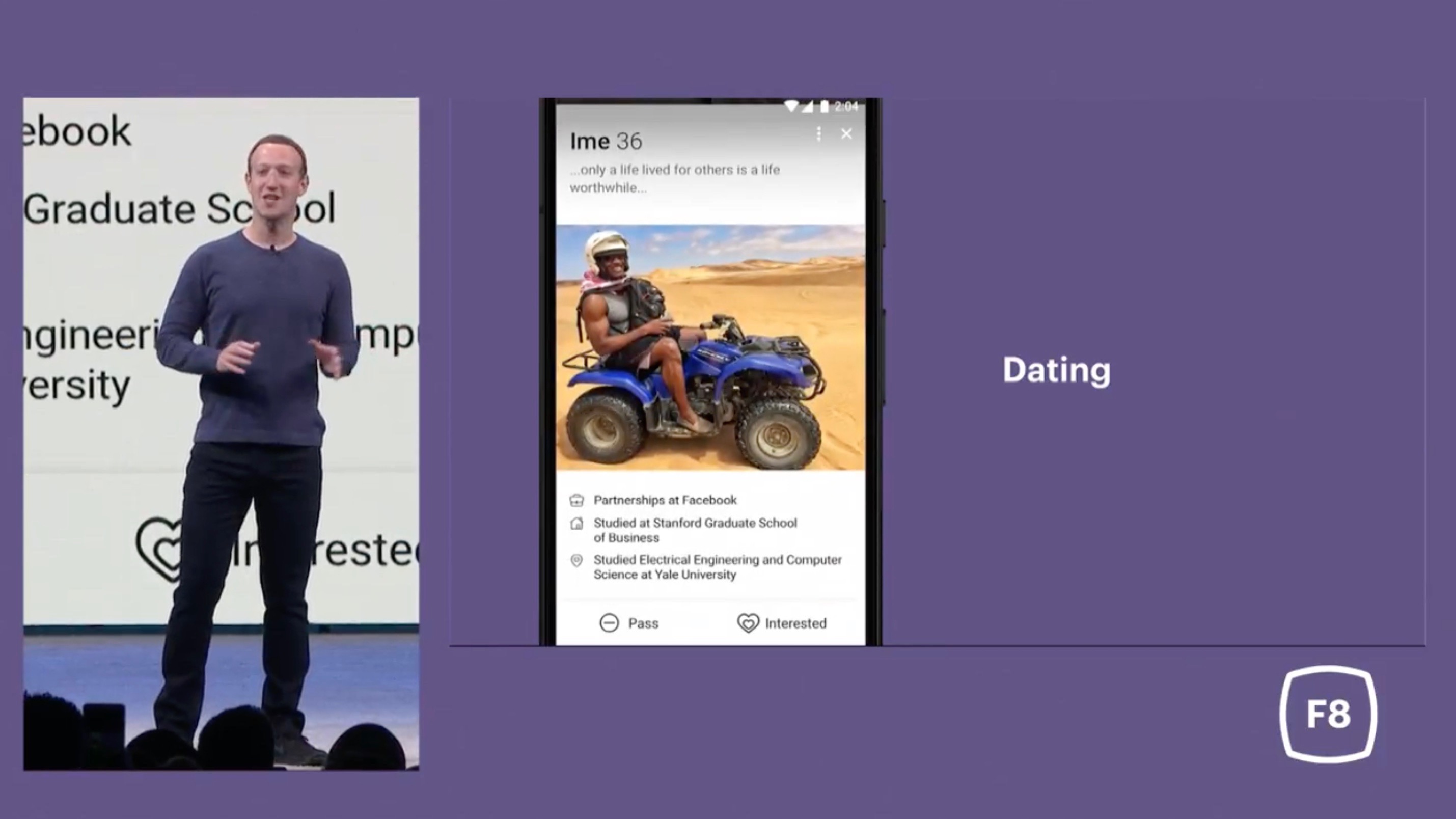
Facebook doesn’t just want to be the place to chat with family members and old school friends anymore.
Soon, you'l' be able to build a Facebook dating profile and connect with other singles in your area—in a part of the app that your regular Facebook friends can’t see.
If you opt into the feature, you’ll be able to set up a dating profile, then search your area for Events and Groups where you're likely to meet potential daters.
Select a group, and you’ll be able to click on members’ profiles and see their photos and stated interests. You can then click on one of their photos as a “conversation starter” and initiate individual chat chains with other users, which will be text-only (no chance for unsolicited photos).
Facebook will also recommend potential matches “based on dating preferences, things in common, and mutual friends”, but Zuckerberg emphasized that it won’t pair you up with any actual Facebook friends.
“This is going to be for building real, long-term relationships, okay? Not just hookups!” Zuckerberg said, to laughs from the crowd.
Zuckerberg implied that this will be available through the Facebook app, but Facebook Chief Product Officer Chris Cox mentioned that dating profiles could be available as a separate app, because focus groups wanted to keep their dating profiles separate from their regular profiles.
Beta testing of the dating features will begin “later this year”.
3. Facebook Messenger is getting a redesign
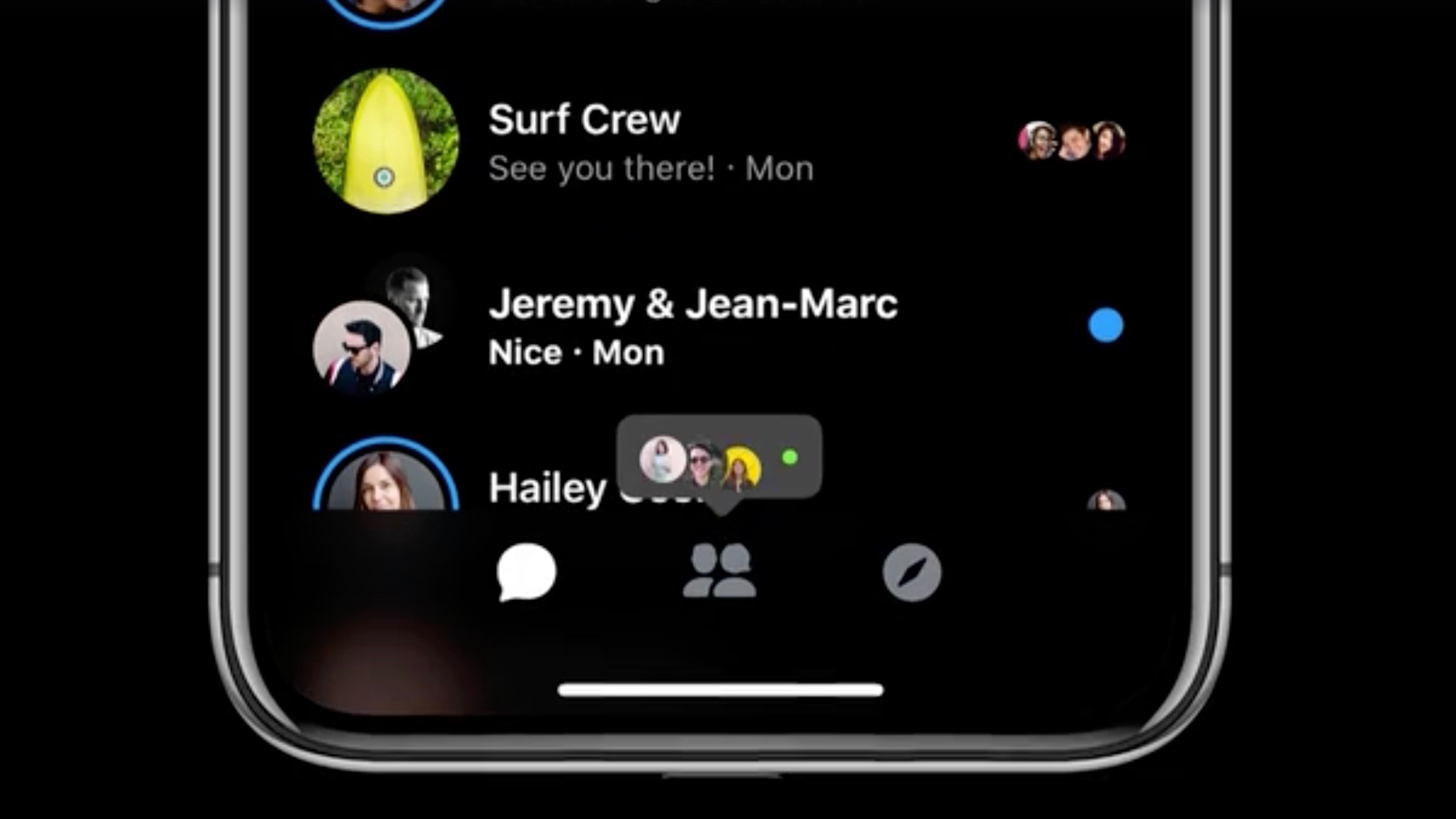
Facebook Messenger may be getting new features like 4K photos, AR effects and AI translation tech, but the platform's upcoming interface revamp will clear away a lot of the clutter.
VP of Messaging David Marcus showed off a quick glance at the new look on stage some time after Zuckerberg also said Messenger was due to get a simpler, cleaner look.
Facebook plans to remove the games and camera tabs on the bottom, shrinking the friend bubbles a bit, and even adding what looks like a night mode option.
Marcus hinted that this simpler, cleaner new interface will be coming out “very soon”.
4. Clear History will wipe what you've been browsing

Thinking about deleting Facebook to protect your data privacy? Facebook wants to give you a less drastic option to keep your business: clearing cookies and deleting browser history.
In a few months, Facebook will roll out a “Clear History” option, which will let you turn off Facebook’s ability to store data on you.
Normally, Facebook Analytics collects data on your browsing history and “Likes”, and uses this information to curate suggestions and ads for your feed.
With Clear History, you’ll be able to wipe all of Facebook Analytics’ collected information about you.
Zuckerberg made it a point on stage to emphasize that the Facebook experience will be degraded if users opt to Clear History. Deleting cookies from a browser, he said, “can make parts of your experience worse. Your Facebook won’t be quite as good while it relearns your preferences”.
In other words, Zuckerberg believes that Facebook needs data on your interests to properly function, and that after users delete their “Off-Facebook History”, they’ll realize they should trust Facebook with data again.
In a separate statement, Erin Egan, Facebook’s Chief Privacy Officer, revealed that clearing your history won’t technically “delete” your data. If you do use this setting, she said, “We’ll still provide apps and websites with aggregated analytics... We can do this without storing the information in a way that’s associated with your account, and as always, we don’t tell advertisers who you are.”
So, by using Facebook, you’ll still be giving the company a means to monetize your data for advertisers. Facebook will just be making that data more generalized, so no one can easily obtain individual ad profiles on users.
Zuckerberg also announced that it plans to hire 20,000 security and content reviewers by October 2018 to fight against fake news during election seasons.
5. New social-focused VR apps
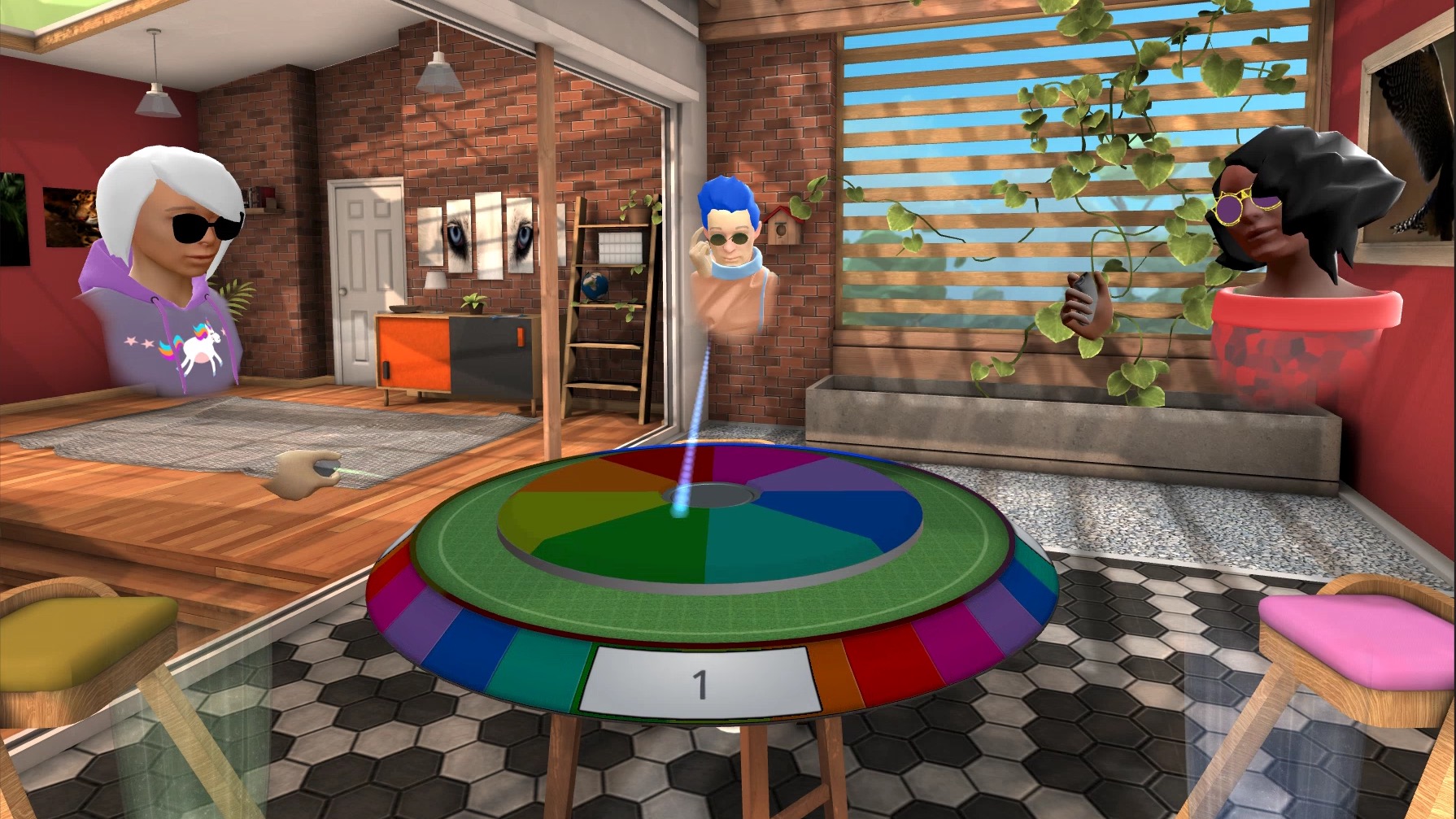
Oculus is pulling out all of the stops to ensure that Oculus Go owners have plenty of new, exclusive VR content to try out within their first month of purchase. Facebook, which owns Oculus, outlined the new and significantly updated apps coming to the platform.
The first app, Oculus Rooms, has been around for awhile, but now it's redesigned and all about making it easier than ever to hang out with friends in a virtual space to play games, watch movies, or otherwise catch up. It'll be available for Oculus Go and Samsung Gear VR for now.
Oculus TV, an Oculus Go-exclusive app, puts you inside of a virtual theater, where you can start a virtual “Watch Party” with up to four friends, and check out both 2D and 3D content, either live or on-demand.
When it launches in May, you’ll be able to watch Netflix, Hulu, Showtime and Facebook Video, and other apps like ESPN+ will be added later this year. Facebook’s VP of VR, Hugo Barra, claimed that the TV screen inside the app can be set as large as 180 inches wide.
You’ll also have access to live events through Oculus Venues, an app for virtually attending ticketed events like concerts, sporting events and theater shows. When it releases later this month for Go and Gear VR, Oculus Venues will debut live concerts, MLB and NBA games, and standup comedy shows.
Finally, Oculus Gallery will let users easily share and view their own photos, video and other media inside virtual reality.
6. Instagram and Messenger add AR Camera Effects
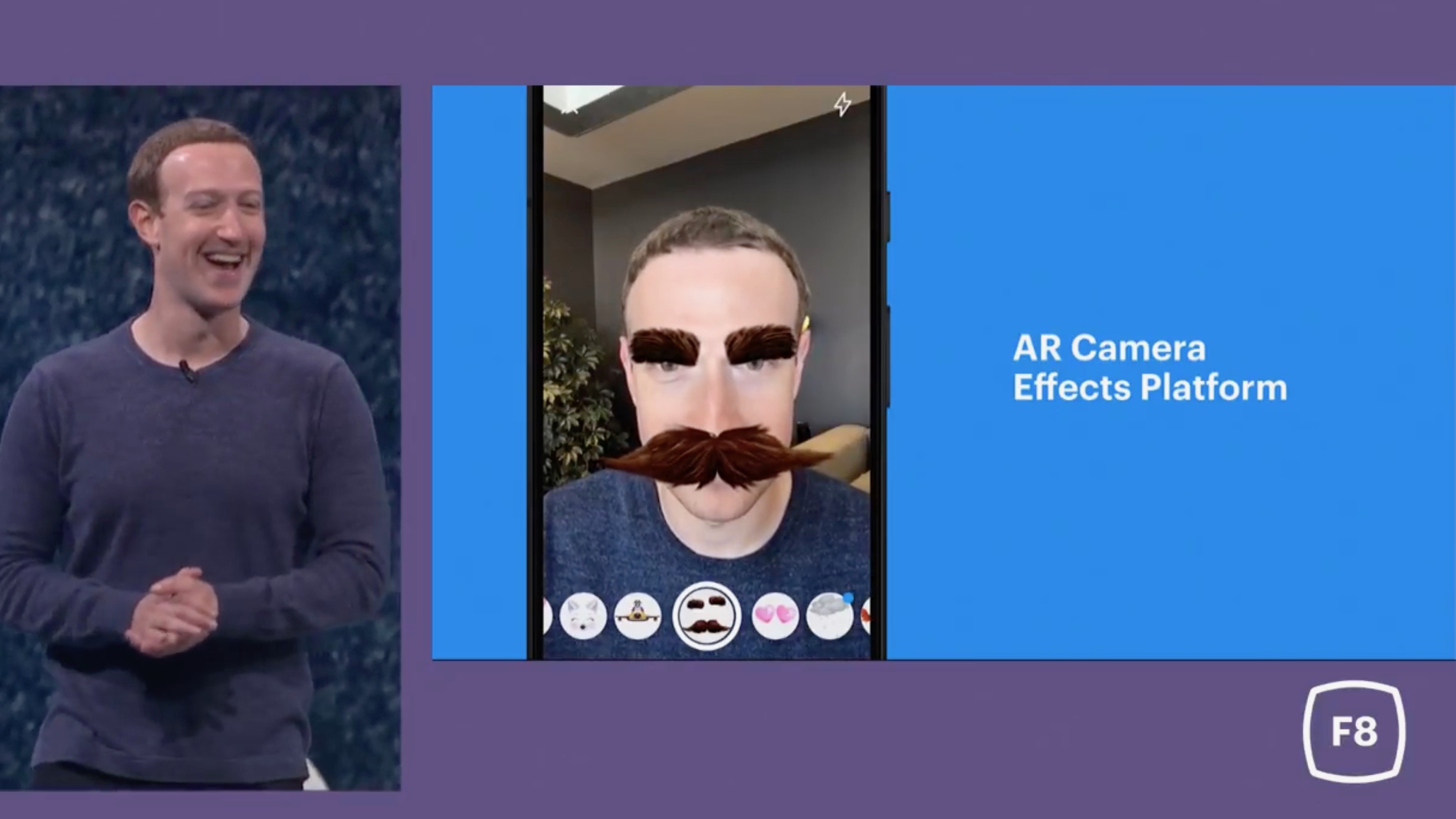
At last year’s F8, Facebook showed off its new augmented reality (AR) technology, which lets you insert 3D animated creations into your photos and videos.
Now, the company has brought its AR Camera Effects suite directly into Instagram and Facebook Messenger, so you can add things like face filters, “world effects” or 3D objects into your feed.
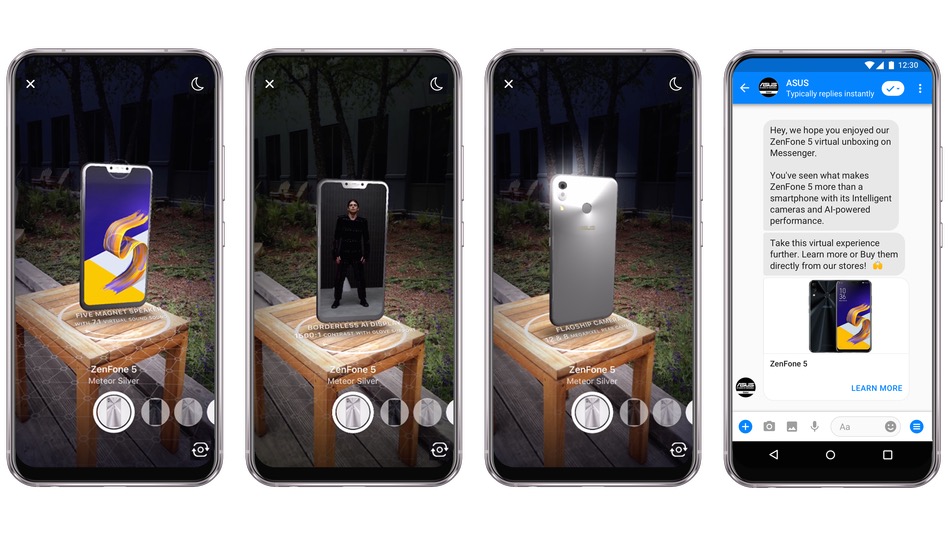
Facebook has also given these AR tools to businesses that use chatbots as part of a closed beta. Early partners like Nike, Asus, Sephora and Kia, will use 3D visualizations of objects to their products so you can see what they'll look like from the comfort of your home.
You’ll be able to put a makeup filter over your face to see what a certain shade looks like on you, for example, or check out how a Kia Stinger or pair of Nikes look in different colors.
7. Big updates to Instagram chat and WhatsApp calling
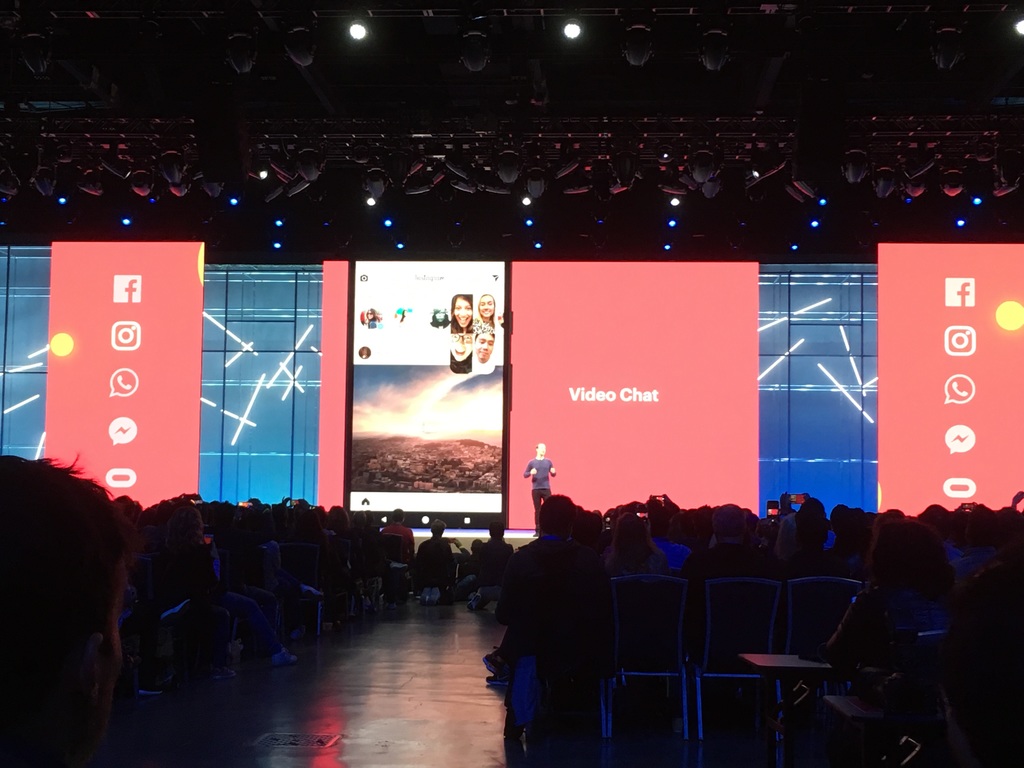
Confirming rumors from earlier this year, Zuckerberg announced that Instagram users can now use video chat to connect with people through the app.
Up to four people can join the chat at once, and you’ll be able to browse around inside the app while your friends sit in a thumbnail in the corner.
Part of that browsing will be in their revamped Explore mode, which places photo category buttons on the top of the window in a carousel, so you can quickly swipe through different options like “Animals” or “Architecture” and select one that strikes your fancy.
Zuckerberg claimed that people has been using the live video feature to “just hang out” with friends, and that video chat was a logical addition to the platform.
Facebook has also added a similar option to WhatsApp called Group Calling, which also allows up to four people onto one call.
Zuckerberg said that people already make “2 billion minutes of voice and video calls on WhatsApp” every day, and this new addition could add to that number.
- Oculus Go vs Oculus Rift: should you switch to standalone VR?
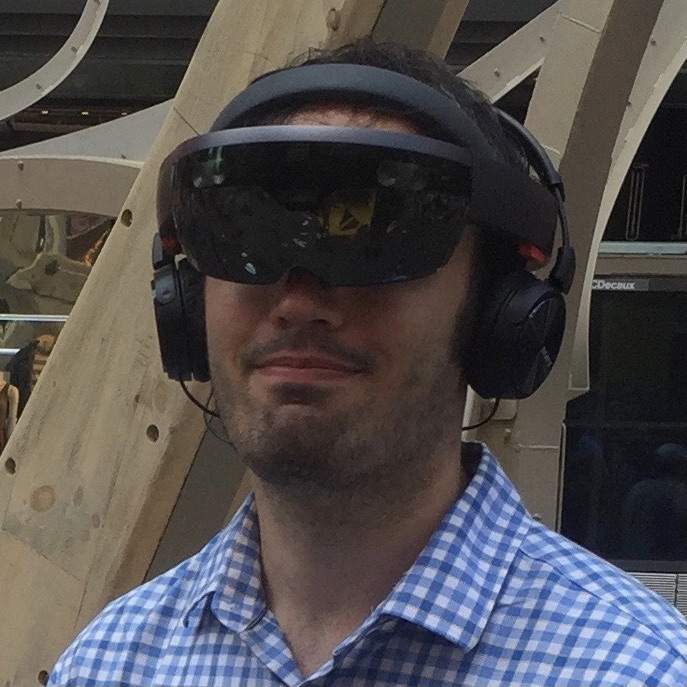
Michael Hicks began his freelance writing career with TechRadar in 2016, covering emerging tech like VR and self-driving cars. Nowadays, he works as a staff editor for Android Central, but still writes occasional TR reviews, how-tos and explainers on phones, tablets, smart home devices, and other tech.